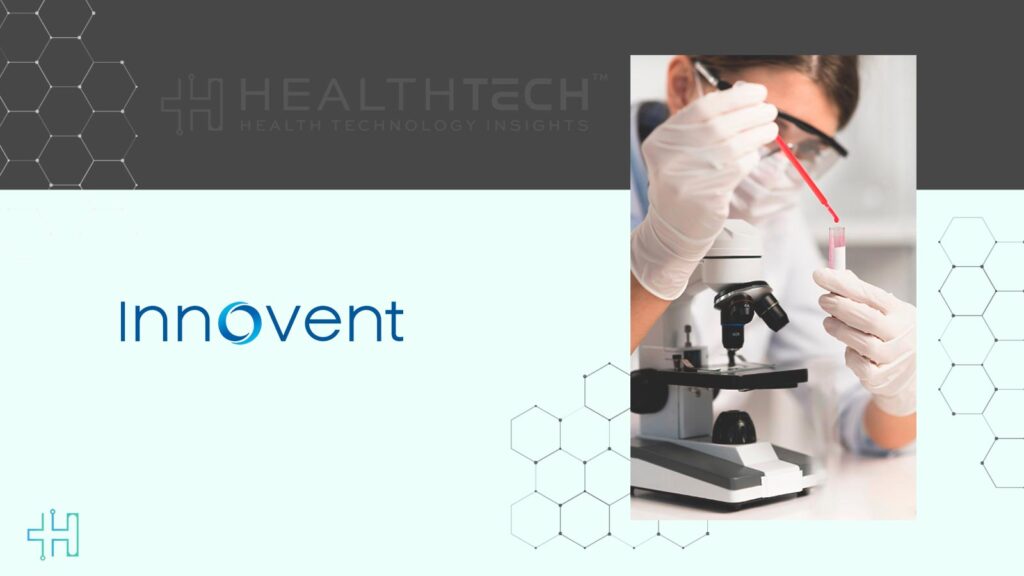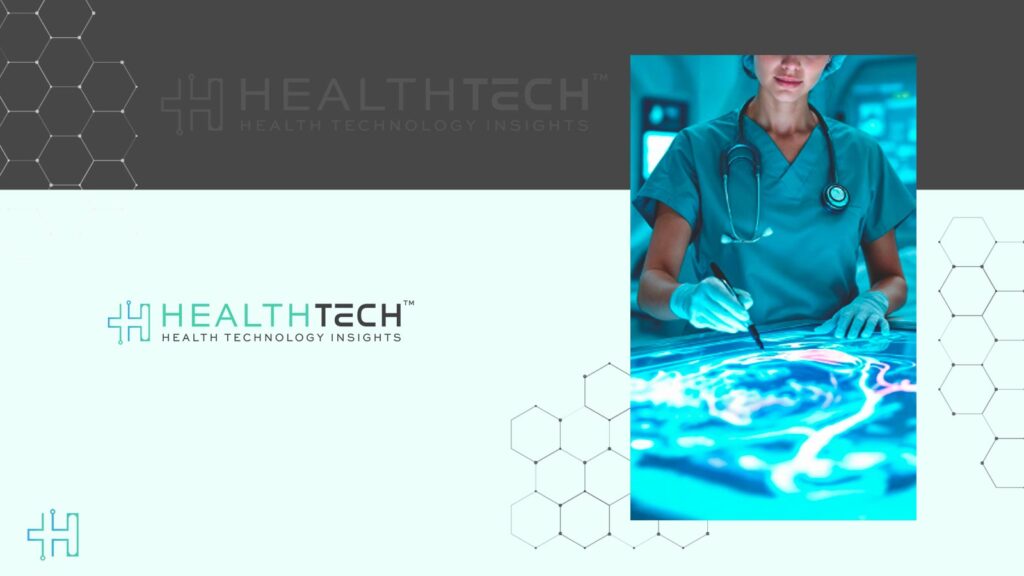Innovent Biologics, a world-class biopharmaceutical company that develops, manufactures and commercializes high-quality medicines for the treatment of oncology, cardiovascular and metabolic, autoimmune, ophthalmology and other major diseases, announced that Nature Medicine (IF: 58.7) has published the results of the Phase 1 clinical study of IBI343, an innovative anti-CLDN18.2 ADC, for the treatment of advanced gastric/gastroesophageal junction (G/GEJ) adenocarcinoma. Publication in this leading international academic journal indicates the strong recognition of the therapy’s clinical potential and marks another significant milestone in China’s progress in developing novel anti-tumor medications. Based on the study findings, a multi-regional Phase 3 clinical trial (G-HOPE-001, NCT06238843) was launched in 2024 to further evaluate IBI343 as a safe and effective treatment option for patients with advanced G/GEJ AC.
Health Technology Insights: HealthBook Launches Paige AI Health Assistant
Gastric cancer remains one of the most common malignant tumors in the world. According to the GLOBOCAN 2022 statistics, it ranks as the fifth most common malignant tumor and the fifth leading cause of cancer-related death globally, with an estimated 970,000 new cases and 660,000 deaths annually. Each year, China reports 359,000 new cases and 260,000 deaths from gastric cancer, representing 37.0% and 39.4% of global totals, respectively, highlighting a significant unmet medical need.
CLDN 18.2 is a tight junction protein expressed in differentiated epithelial cells on the gastric mucosa under normal physiological conditions. Previous studies have revealed that Claudin18.2 is highly expressed in multiple types of cancer, including gastric cancer (60-80%), pancreatic cancer (50%), esophageal carcinoma (30-50%), and lung cancer (40-60%). Targeting CLDN18.2 with monoclonal antibodies (mAbs) and ADCs represents a promising new approach for treating gastric cancer.
This published study is a global, multicenter Phase 1 clinical trial (ClinicalTrial.gov identifier: NCT05458219) designed to evaluate the safety, tolerability and preliminary efficacy of IBI343 in patients with advanced solid tumors. Between October 26, 2022, and June 30, 2024, a total of 116 subjects with advanced G/GEJ adenocarcinoma were enrolled to receive IBI343 monotherapy (8 in escalation and 108 in expansion).
IBI343 has demonstrated encouraging tumor response and survival benefit
The study analyzed the efficacy data of evaluable subjects with high expression of CLDN18.2 (≥75% tumor cells with membranous staining intensity ≥2+ by IHC), in the two dose groups of 6 mg/kg and 8 mg/kg.
- At 6 mg/kg (N=31), 15 patients had partial responses (PR) including 9 patients with confirmed PRs and 1 patient awaiting confirmation. The confirmed ORR was 29.0% (95% CI: 14.2-48.0) and the disease control rate (DCR) was 90.3% (95% CI: 74.2-98.0). In 9 patients with confirmed response, the median duration of response (DoR) was 5.6 months (95% CI: 2.8-7.0). The median follow-up was 10.6 months (95% CI: 9.7-11.5) for PFS and OS. The median PFS was 5.5 months (95% CI: 4.1-7.0). OS data was not mature with the current median OS of 10.8 months (95% CI: 6.8-NC). After data cutoff, response of the remaining 1 patient was confirmed on July 26, 2024 and the confirmed ORR was updated to 32.3% (95% CI: 16.7-51.4).
- At 8 mg/kg (N=17), 17 patients with high expression of CLDN 18.2 were evaluable. Among them, 9 patients had PRs including 8 patients had confirmed PR. The confirmed ORR 47.1% (95% CI: 23.0-72.2), and the DCR was 88.2% (95% CI: 63.6-98.5). In eight patients with confirmed response, the median DoR was 5.7 months (95% CI: 2.7-NC). Of all G/GEJ adenocarcinoma patients with high CLDN18.2 expression treated at 8 mg/kg (N=19, including 1 patient from dose escalation and 18 patients from dose expansion), the median follow-up was 8.1 months (95% CI: 7.6-8.5) for PFS and OS. The median PFS was 6.8 months (95% CI: 2.8-7.5), and the median OS was not reached with events occurred in 36.8% patients.
Health Technology Insights: Robot Performs 1st Realistic Surgery Without Human Help
IBI343 also demonstrated superior safety
- Among all patients with G/GEJ adenocarcinoma (n=116, including 8 patients with gastric cancer from the dose escalation phase), 66.4% patients (77/116) had ≥3 grade TEAEs. The most common ≥3 grade TEAEs (≥35%) were neutrophil count decreased (28.4%), white blood cell count decreased (25.9%), and anemia (16.4%). There were very few grade ≥3 gastrointestinal adverse events, including only 1.7% of grade ≥3 nausea. No interstitial lung disease of any grade was reported. Treatment-related toxicity was alleviated with adequate supportive treatment, and the overall safety was tolerable.
Integrated pharmacokinetics (PK), exposure-response, safety, and efficacy data supported 6 mg/kg Q3W as the recommended Phase 2 dose (RP2D) of IBI343. This provides support for the conduct of subsequent Phase 3 trial, suggesting that IBI343 may become a new treatment option for patients with gastric cancer in the future.
Professor Lin Shen, Corresponding Author, Leading Principal Investigator, from Beijing Cancer Hospital, said, “Following the eras of chemotherapy, targeted therapy and immunotherapy, ADCs have opened a new frontier in the treatment of gastrointestinal tumors. IBI343 is a new generation of Fc-silent anti-CLDN18.2 ADC that has shown encouraging clinical benefits and low gastrointestinal toxicity in Phase 1 studies. We look forward to the results of the Phase 3 study comparing IBI343 with standard treatment, aiming to ultimately reshape clinical practice, transform treatment paradigms, and usher in a new chapter in precision medicine.”
Dr. Hui Zhou, Chief R&D Officer for Oncology Pipeline at Innovent Biologics, said, “There is a huge unmet clinical need for the treatment of advanced gastric cancer. The Phase 1 study results of IBI343 in advanced gastric and gastroesophageal junction adenocarcinoma, now published in the top international journal, Nature Medicine, further verify the clinical value of IBI343 in this population. We will work with researchers worldwide to advance the multi-regional Phase 3 clinical trial (G-HOPE-001), with the goal of establishing a new paradigm in clinical diagnosis and treatment and ultimately benefiting gastric cancer patients around the world. We are also exploring the therapeutic potential of IBI343 in pancreatic cancer and other indications.”
About Gastric/ Gastroesophageal Junction Adenocarcinoma
Gastric cancer is one of the most prevalent malignant tumors worldwide and a leading cause of cancer-related deaths globally. The 5-year survival rate of patients with metastatic gastric cancer is less than 5%[i]. China and Japan have the highest incidence rates of gastric cancer[ii]. Currently, the standard-of-care treatments for patients with advanced metastatic gastric cancer include a chemotherapy combination of fluoropyrimidine and platinum, as well as immune checkpoint inhibitor therapy. However, systemic therapy has limited efficacy in advanced gastric cancer. In particular, the prognosis for patients with third-line or higher gastric cancer is usually poor, with fewer treatment options and shorter survival expectations. The median survival time for these patients is only about 0.5 year[iii].
Claudin, a member of the tight junction molecule family, is a key structural and functional component of epithelial tight junctions. Among them, CLDN18.2 is normally buried in gastric mucosa, but the development of malignancy leads to disruption of tight junctions and exposure of CLDN18.2 epitopes on the membrane of tumor cells[iv]. CLDN18.2 is expressed in up to 80% of patients with gastric cancer.
About IBI343(Anti CLDN18.2 ADC)
IBI343 is a recombinant human anti-CLDN18.2 monoclonal antibody-drug conjugate (ADC) developed by Innovent Biologics. It specifically binds to the tumor cells expressing CLDN18.2, triggering CLDN18.2-dependent internalization of the ADC. Once inside the cell, the cytotoxic payload is released, resulting in DNA damage and ultimately apoptosis of the tumor cells. The released drug can also diffuse across the plasma membrane to reach and kill neighboring cells, resulting in a “bystander killing effect”.
As an innovative TOPO1i ADC, IBI343 has demonstrated tolerable safety and encouraging efficacy signals in this Phase 1 clinical studies. The therapeutic potential of IBI343 is currently being explored in tumor types such as gastric cancer and pancreatic cancer.
The multi-regional Phase 3 clinical trial of IBI343 for advanced gastric / gastroesophageal junction adenocarcinoma is now recruiting patients (G-HOPE-001, NCT06238843). The relevant indication has been granted Breakthrough Therapy Designation (BTD) by China’s NMPA .
The multi-regional Phase 1 clinical trial of IBI343 for advanced pancreatic ductal adenocarcinoma is also enrolling patients (NCT05458219). This indication has received Fast Track Designation (FTD) from the U.S. FDA and been granted BTD by China’s NMPA.
Health Technology Insights: HiLabs Appoints Robert Renzi as Chief Growth Officer
To participate in our interviews, please write to our HealthTech Media Room at sudipto@intentamplify.com
Source : PR Newswire



